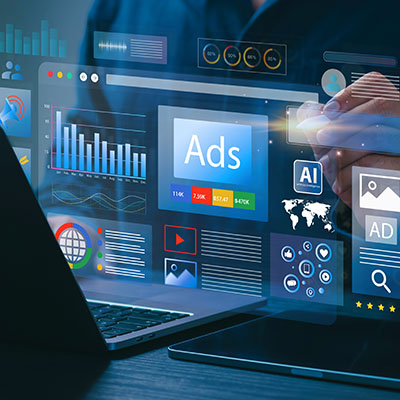Artificial intelligence is becoming ubiquitous in the business technology sector and for good reason. It’s allowing small and medium-sized businesses to do more and compete with businesses that were previously just ahead of them. Today, we want to go over some (reasonably) easy ways you can use AI in your IT operations to make your business more efficient.
Smart speakers have been around for a while now, but let’s be real… have they actually changed the world? Not really. They’re great for blasting music, setting reminders, and answering random trivia questions, but beyond that? Meh.
Much has been made about artificial intelligence and the quickening pace in which it is being used in all walks of life, but especially business. AI is shaping the world around us, many people don’t really understand how it works or how to use it effectively. That’s where AI literacy comes in. In today’s blog, we’ll define AI literacy and how it will affect your organization in the near future.
If we told you that someone could guess information about you just from looking at an image, what would you say? You’d probably say, “yeah, no $!#?!” but we’re not talking about minor details… we’re talking about a lot of details. Paragraphs, even—plenty enough to be concerning.
Want to be a business without hearing how artificial intelligence is changing the industry? Good luck; it’s a big deal that this technology has flourished in recent years, and businesses have found all kinds of ways to implement it. While AI has significant capacity for growth and to be an excellent tool to help human society, a lack of AI regulation has led some to believe that it’s only a matter of time before something bad happens that ruins a good thing for everyone.
Google is all-in on artificial intelligence, as evidenced by their creation of Google Gemini, the company’s AI platform. As one would expect, this means that Gemini has a substantial list of capabilities that today’s businesses can take advantage of. Let’s run through some of them as a refresher and, perhaps, introduce you to new opportunities.
Artificial intelligence is a hot topic nowadays, making data an even more valuable resource. After all, AI platforms rely on data to function. Due to this, many platforms and services collect data from their users to feed these algorithms. LinkedIn was recently discovered to have started doing so—by default—without informing users or updating its terms of service.
Artificial intelligence (AI) is rapidly transforming the technology landscape, and mobile devices are at the forefront of this revolution. As smartphones and tablets become increasingly powerful and sophisticated, they are becoming ideal platforms for running AI applications. This trend is driven by several factors, including:
Businesses are constantly seeking the best ways to utilize their data. Whether developing a business intelligence strategy, integrating artificial intelligence, or conducting simple analytics, having accurate and reliable data is crucial. Without it, insights can be misleading and costly. Therefore, understanding how to scrub or clean your data is essential. Clean data is vital for anyone involved in business intelligence or AI. Today, we will explore this topic and provide a simple guide to get you started.
You may have noticed the recent attempts by Google to provide AI-generated answers to your queries. You might not immediately understand why AI is such a prevalent thing in arbitrary technology like search engines, but we assure you that there is a good reason for it—a better user experience—even if it does come with mixed results.
- 1
- 2










